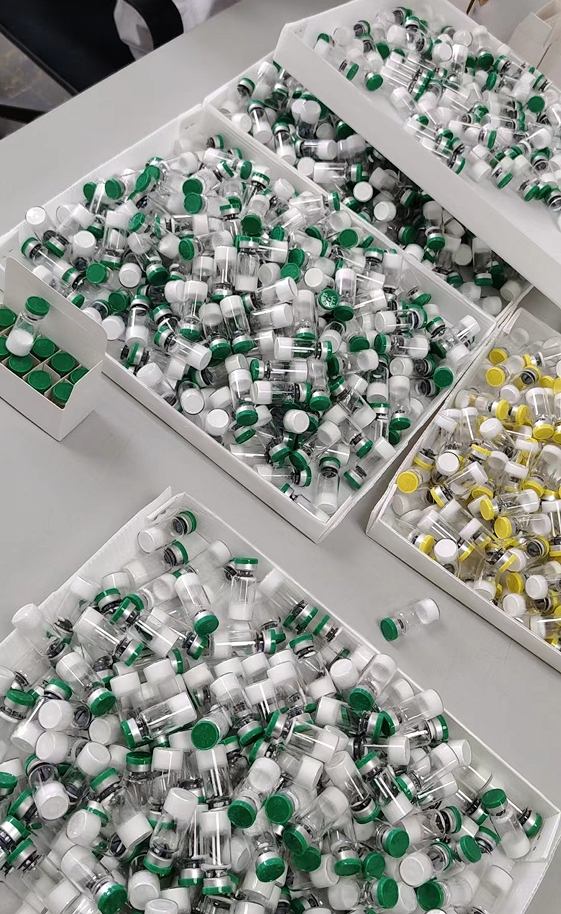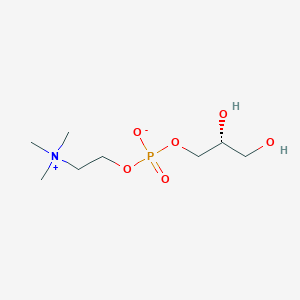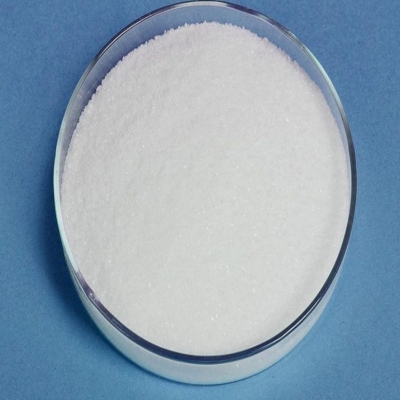-
Categories
-
Pharmaceutical Intermediates
-
Active Pharmaceutical Ingredients
-
Food Additives
- Industrial Coatings
- Agrochemicals
- Dyes and Pigments
- Surfactant
- Flavors and Fragrances
- Chemical Reagents
- Catalyst and Auxiliary
- Natural Products
- Inorganic Chemistry
-
Organic Chemistry
-
Biochemical Engineering
- Analytical Chemistry
- Cosmetic Ingredient
-
Pharmaceutical Intermediates
Promotion
ECHEMI Mall
Wholesale
Weekly Price
Exhibition
News
-
Trade Service
● Compared with chemotherapy alone, Odivo (Navuliumab) combined with chemotherapy for the treatment of previously untreated Chinese advanced patients has achieved clinically significant overall survival and progression-free survival benefits, and higher Objective response rate, this result is consistent with the results of the overall population of advanced gastric cancer, gastroesophageal junction cancer and esophageal adenocarcinoma in the CheckMate-649 study;
● In patients with PD-L1 positive and CPS ≥ 5, the median overall survival and median progression-free survival benefits of Odivo combined with chemotherapy were observed to be more than 1.
5 times and nearly twice that of chemotherapy alone.
;
● In all random populations, the same overall survival and progression-free survival benefits were observed;
● In the clinical study of immunotherapy for gastric cancer and gastroesophageal junction cancer covering patients in mainland China, CheckMate -649 study is the first and currently the only first-line treatment phase III study with positive results
.
(Shanghai, China, April 10, 2021) Bristol-Myers Squibb today announced the main results of the key phase III study CheckMate -649 China subgroup
.
In the Chinese population, compared with chemotherapy alone, Odivo (nivolumab) combined with chemotherapy as the first-line treatment of unresectable advanced or metastatic gastric cancer and gastroesophageal junction cancer has achieved clinically meaningful overall survival ( OS) and progression-free survival (PFS) benefit
"The incidence and fatality rate of gastric cancer in China accounted for 44% and 49% of the global rate, respectively [WHO, Globocan 2020 World.
Available from ], [WHO, Globocan 2020 China.
Available from ], and about 80% of patients were diagnosed at the time of diagnosis.
Advanced stage [Lei Y.
, et al.
Incidence and mortality of stomach cancer in China, 2014 [J].
Chinese Journal of Cancer Research,2018,30(03):291-298.
] The
first-line treatment of gastric cancer determines the survival of patients Key factors for benefit and follow-up treatment.
However, the survival benefits of standard first-line chemotherapy for patients in the past are very limited, and innovative treatment options are urgently needed in the clinic
In a clinical study of immunotherapy for gastric cancer and gastroesophageal junction cancer covering patients in Mainland China, CheckMate-649 is the first and currently the only first-line treatment phase III study with positive results.
A total of 208 previously untreated and inoperable patients were included.
The HER2-negative Chinese mainland patients with advanced or metastatic gastric cancer or gastroesophageal junction cancer were randomly assigned to the nivolumab combined chemotherapy group or the chemotherapy group alone
.
Regardless of the expression of PD-L1, they can be included in the group
The results of the study showed that in patients with PD-L1 positive and CPS ≥ 5, the median OS of the Odivo combined chemotherapy group was 15.
5 months (95% CI: 11.
9-25.
5) in terms of the primary endpoint, compared with the control alone chemotherapy The group was 9.
6 months (95% CI: 8.
0-12.
1) (hazard ratio [HR]: 0.
54; 95% confidence interval [CI]: 0.
36-0.
79)
.
The median PFS of the Odivo combined chemotherapy group was 8.
In PD-L1 positive patients with CPS≥1 and all randomized populations, Odivo combined with chemotherapy also showed clinically significant OS benefits
.
In patients with PD-L1 positive and CPS ≥ 1, the median OS (HR: 0.
In this study, the safety characteristics of Odivo combined with chemotherapy are consistent with the known safety characteristics of Odivo and chemotherapy, and no new safety signals have been observed
.
And the overall safety of the Chinese subgroup of patients is consistent with that of the global population
Professor Xu Ruihua, a Chinese researcher at CheckMate-649 and dean of Sun Yat-sen University Cancer Center, pointed out: “Stomach cancer is one of the most important public health issues in
China.
Accumulating Chinese data, reflecting Chinese voices, and exploring innovative treatments suitable for Chinese patients is to develop clinical An important part of the
"Under the premise of fully considering the high incidence of gastric cancer in China, the CheckMate-649 study included large-scale Chinese patients who are representative of first-line gastric cancer, and adopted a strategy that is highly compatible with the current clinical practice of gastric cancer in China.
It has a significant impact on the clinical research and treatment of gastric cancer in China.
A milestone
.
” said Dr.
About CheckMate -649
CheckMate -649 is a phase III randomized, multicenter, open-label clinical study that aims to evaluate the use of nivoliumab combined with chemotherapy or nivoliumab combined with ipilimumab compared with chemotherapy alone Efficacy of HER2-negative, advanced or metastatic gastric cancer, gastroesophageal junction cancer or esophageal adenocarcinoma who has not received previous treatment
.
The primary endpoint of the study was the overall survival (OS) of patients with positive PD-L1 expression, ie combined positive score (CPS) ≥ 5, compared with chemotherapy alone, and based on a blinded independent center review.
Progression-free survival (PFS) assessed by the Committee (BICR)
.
Key secondary endpoints include the OS of patients with CPS ≥ 1 and all randomized patients who received nivolumumab combined with chemotherapy, and the OS of patients who received nivolumab combined with ipilimumab versus chemotherapy alone and the time to symptom worsening (TTSD)
.
Patients in the nivolumab combined with chemotherapy group received nivolumab 360 mg combined with capecitabine and oxaliplatin (CapeOX) every 3 weeks; or received nivolumab 240 mg combined with 5- Treatment with fluorouracil, leucovorin and oxaliplatin (FOLFOX) every 2 weeks
.
Patients in the nivolumumab combined with ipilimumab group received nivolumab 1 mg/kg combined with ipilimumab 3 mg/kg, once every 3 weeks, after four consecutive cycles of administration, sequential administration Wuliyuumab 240 mg, once every 2 weeks
.
Patients in the chemotherapy group received FOLFOX treatment, once every 2 weeks, or CapeOX treatment, once every 3 weeks
.
All patients continued treatment for up to two years, or until disease progression, intolerable toxicity, or withdrawal of informed consent
.
About stomach cancer
In 2020, approximately 1,090,000 new cases of gastric cancer and 768,000 deaths are expected worldwide
.
In China, the number of new incidences and deaths of gastric cancer ranks the top three among all cancers, accounting for 44% and 49% of the global incidences and deaths of gastric cancer, respectively
.
The definition of gastric cancer is broad.
A variety of cancers, including gastroesophageal junction (GEJ) cancer formed at the junction of the stomach and esophagus, can be classified as gastric cancer
.
Compared with gastric cancer, the prevalence of gastroesophageal junction cancer is low, but it continues to increase
.
Because many patients with gastric cancer cannot tolerate follow-up treatment due to their worsening condition, first-line treatment is often the best opportunity for patients with gastric or gastroesophageal junction cancer to achieve curative effect
.
About esophageal cancer
In 2020, there will be approximately 604,000 new cases worldwide and 544,000 deaths
.
Squamous cell carcinoma (ESCC) and adenocarcinoma are still the two most common types, accounting for nearly 90% and 10% of the total number of esophageal cancer patients, respectively
.
The composition of different tissue types varies greatly between regions .
Most ESCC cases are concentrated in Asia, accounting for about 80% of ESCC cases worldwide in 2020
.
Most patients with esophageal cancer are already at an advanced stage when they are diagnosed, and affect daily life including diet
.
Squamous cell carcinoma of the esophagus mostly occurs in the upper and middle part of the esophagus; while adenocarcinoma originates from the cells of the esophageal mucus secreting glands, and most often occurs in the lower part of the esophagus
.
About Odivo
Odivo was approved as the world's first PD-1 inhibitor in July 2014.
It has been approved for a total of 11 tumor types in 66 countries and regions.
[Note: Odivo-based immune monotherapy and immunization Combination treatment program], covering lung cancer, head and neck cancer, stomach cancer, esophageal cancer, liver cancer, kidney cancer, colorectal cancer, urothelial cancer, melanoma, Hodgkin's lymphoma, pleural tumor, benefiting more than 590,000 patients worldwide
.
Odivo is the first immuno-oncology drug approved for marketing in China.
Currently, it has been approved for a total of 3 indications in China, and other indications have not been approved except for the following:
1) For the treatment of epidermal growth factor receptor (EGFR) gene mutation-negative and anaplastic lymphoma kinase (ALK)-negative, disease progression or intolerable locally advanced or metastatic non-small cells after previous platinum-containing chemotherapy Adult patients with lung cancer (NSCLC);
2) It is used for recurrent or metastatic head and neck squamous cell carcinoma (SCCHN) during or after treatment with platinum-containing regimens that have disease progression and tumor PD-L1 expression is positive (PD-L1 expressing tumor cells ≥ 1%) )patient;
3) For the treatment of patients with advanced or recurrent gastric or gastroesophageal junction adenocarcinoma who have received two or more systemic treatments in the past
.
Odivo is the only PD-1 inhibitor directly involved in the development of Nobel Prize winners in Physiology or Medicine
.
Bristol-Myers Squibb has the exclusive right to use the PD-1 patent of Dr.
Shuyou Ben
.
About Bristol-Myers Squibb China
Bristol-Myers Squibb is a global biopharmaceutical company with a mission of "developing and providing innovative drugs to help patients overcome serious diseases"
.
In China, the company has a leading position in the field of diseases such as hepatitis and immuno-oncology
.
Celgene and Juno Medical are wholly-owned subsidiaries of Bristol-Myers Squibb
.
In some markets outside the United States, in view of local laws, Xinji and Juno Medical are respectively called Xinji-a Bristol-Myers Squibb company and Juno Medical-a Bristol-Myers Squibb company
.







